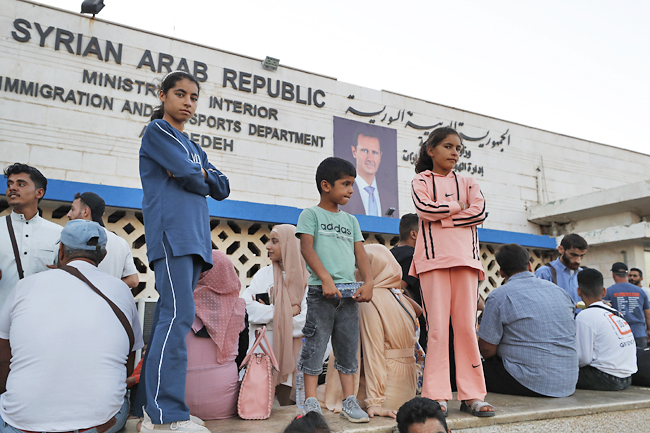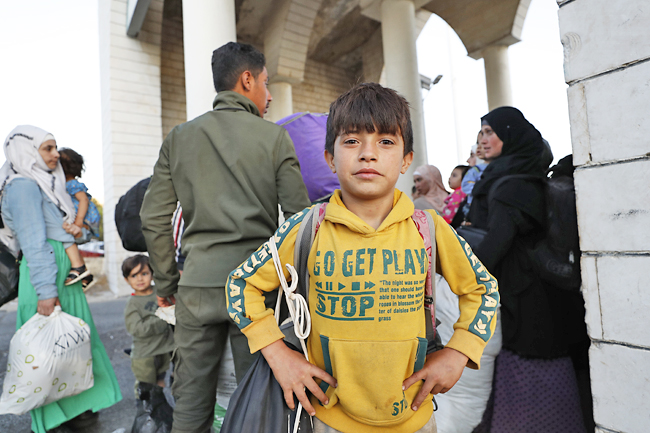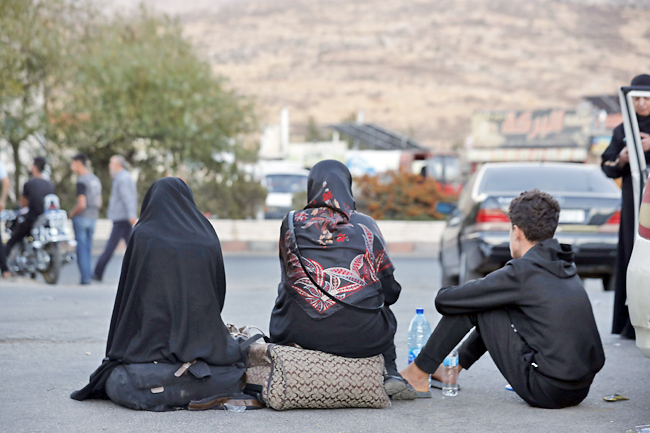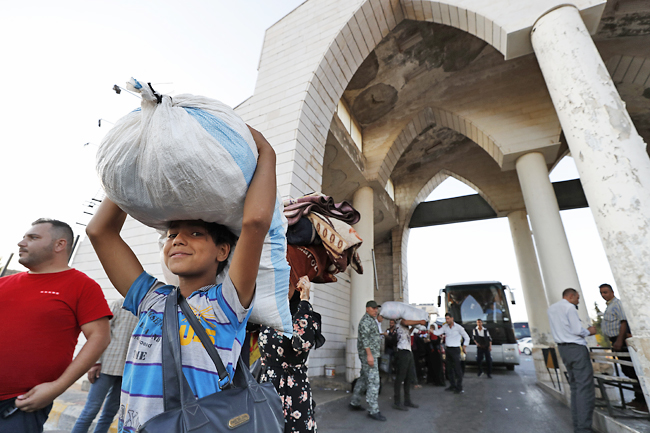SYRIA (AP) – Families fleeing the escalating conflict in Lebanon poured into Syria in growing numbers, waiting for hours in heavy traffic to reach the relative safety of another war-torn country.
United Nations (UN) officials estimated that thousands of Lebanese and Syrian families had already made the journey. Those numbers are expected to grow as Israel targets southern and eastern Lebanon in an aerial bombardment that local officials said has killed more than 600 people this week, at least a quarter of them women and children. Israel says it is targeting Hezbollah fighters and weapons.
Lines of buses and cars extended for several kilometres from the Syria border beginning Monday, and some families were seen making the journey on foot. Once in Syria, people waited hours more to be processed by overwhelmed border officials, and relief workers handed out food, water, mattresses and blankets.
“Many will have to spend the night outdoors waiting their turn,” a spokesperson for the UN’s refugee agency Rula Amin, said in a statement.
Amin said some of the people arriving from Lebanon had visible injuries suffered from recent attacks.
The cross-border flow was a striking reversal in fortunes given that Lebanon is still hosting more than one million Syrian refugees who fled the war in their country that began in 2011.




That’s when an initially peaceful anti-government uprising was met by a brutal government crackdown and spiralled into an ongoing civil war.
In the Syrian border town of Jdeidet Yabous, some families sat glumly on the side of the road when Associated Press journalists visited the area. Some used their bags as seats, waiting for taxis, buses or relatives to pick them up. Many said they had spent eight or nine hours in traffic just to get into Syria.
Before crossing the border, crowds packed into a government office to be processed by immigration officers and, in the case of Syrian citizens, to change USD100 to Syrian pounds before entering – a measure imposed in an attempt to prop up the local currency by bringing more dollars into the country. Due to the sudden spike in demand, the supply of Syrian pounds at the border ran short.
Some were returning refugees, like Emad al-Salim, who had fled Aleppo in 2014. He was living in the southern coastal city of Tyre when Monday’s bombardment began. He gathered his wife and six children and fled again.
“There were houses destroyed in front of me as we were coming out,” he said. “It took us three days to get here.”
Nada Hamid al-Lajji returned with her family after seven years in Lebanon with her husband. They are from eastern Syria, but al-Lajji said she doesn’t know if they will return there.
“Where am I going to go?” she said. “I don’t even have a house anymore. I don’t know where I will go.”
Many Lebanese families were also fleeing. Mahmoud Ahmad Tawbeh from the village of Arnoun in the country’s south had come with an extended family of 35 people, planning to stay in a rented house in a Damascus suburb.
“We left with difficulty, there were a lot of bombs dropping above our heads,” he said. Five or six houses in the village were destroyed and several neighbours were killed, he said.
For many in Lebanon, particularly those living in the Bekaa Valley in the east, Syria appeared to be the quickest route to safety. Israeli strikes across the country this week have wounded more than 2,000.
Many of the Lebanese arriving at the border refused to speak to journalists or would not give their full names because of the sensitivity of the situation. One woman from the town of Harouf in southern Lebanon, who gave her family name, Matouk, said she had come with her brother’s wife, who is Syrian, to stay with in-laws.
Several families near where they lived were killed, she said, and she was worried about her father and siblings who she had left behind. – Abby Sewell



















































